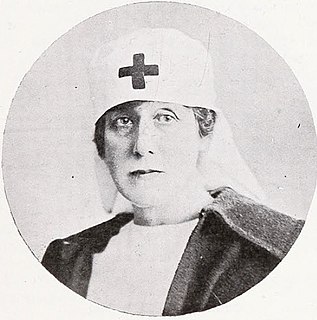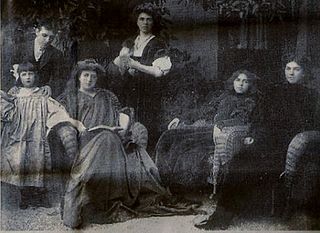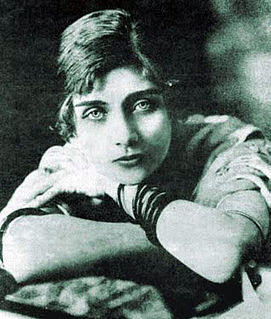 W
WPía Barros Bravo is a Chilean writer, best known for her short stories. She is associated with her country's literary Generation of '80.
 W
WMariana Cox Méndez was a Chilean writer, feminist, essayist and novelist. In addition to novels and short stories, she wrote pieces in the newspaper El Mercurio, La Union, and La Nación. She was condemned and criticized by Chilean society because she wrote for the media. Her work can be framed within the so-called feminismo aristocrático, which includes her contemporaries such as Inés Echeverría Bello, María Mercedes Vial, Teresa Wilms Montt, María Luisa Fernández de García Huidobro, and Ximena Morla Lynch. Her second marriage was to Juan Stuven González. She had a son, Ivan.
 W
WSofía Eastman Cox, also known as Sofía Eastman de Huneeus, was a Chilean feminist writer and socialite. In 1915, she was a founder and president of the Ladies' Reading Circle, one of the first women's groups in Chile, dedicated "to promote and cultivate letters and the arts from the point of view of reception and production, and to improve the quality of education received by women." She also held the presidency of the Chilean Women's Red Cross from 1918 to 1921, an institution of which she was also one of the main benefactors and managers.
 W
WInés Echeverría Bello (1868–1949) was a Chilean writer who used the pseudonyms Iris, Ines Bello, and Rainbow.
 W
WCarmela Jeria,, was a labor activist, typographer, publisher, and social and feminist leader. Called the "first working journalist" of her country, she was the founder of La Alborada, the first feminist worker newspaper published in Chile.
 W
WMaría Julieta Kirkwood Bañados was a Chilean sociologist, political scientist, university professor and feminist activist. She is considered as one of the founders and impellers of the Chilean feminist movement in the 1980s. She is considered as the forerunner of Gender studies in Chile.
 W
WAmanda Labarca Hubertson, was a Chilean diplomat, educator, writer and feminist. Her work was directed mainly at improving the situation of Latin American women and women's suffrage in Chile.
 W
WMaría Eugenia Lorenzini Lorenzini, better known as Kena Lorenzini, is a Chilean psychologist, photographer, writer, curator, feminist, and activist.
 W
WLuisa Lynch del Solar (1864–1937), also known as Luisa Lynch de Morla from her first marriage and Luisa Lynch de Gormaz from her second, was a Chilean feminist writer, journalist, and socialite. She was the mother of diplomat Carlos Morla Lynch, and the writers Ximena and Carmen Morla Lynch. In addition, she is the subject of the 1888 sculpture Madame Morla Vicuña by Auguste Rodin, which can now be found at the Musée d'Orsay in Paris.
 W
WLucila Godoy Alcayaga, known by her pseudonym Gabriela Mistral, was a Chilean poet-diplomat, educator and humanist. In 1945 she became the first Latin American author to receive a Nobel Prize in Literature, "for her lyric poetry which, inspired by powerful emotions, has made her name a symbol of the idealistic aspirations of the entire Latin American world". Some central themes in her poems are nature, betrayal, love, a mother's love, sorrow and recovery, travel, and Latin American identity as formed from a mixture of Native American and European influences. Her portrait also appears on the 5,000 Chilean peso bank note.
 W
WCarmen Morla Lynch (1887–1983), also known as Carmen Morla de Maira, was a Chilean feminist writer. The daughter of Luisa Lynch and Carlos Morla Vicuña, she wrote journals illustrated by her sister Ximena, with whom she also practiced spiritism, both as mediums. Her brother Carlos was a diplomat, writer, and journalist. She was the great-aunt of writer Elizabeth Subercaseaux.
 W
WXimena Morla Lynch (1891–1987), also known as Ximena Morla de Subercaseaux, was a Chilean feminist writer and painter. The daughter of writer Luisa Lynch and conservative politician Carlos Morla Vicuña, she had five siblings, including Carlos, a diplomat, and Carmen, a writer. Her granddaughter is the novelist Elizabeth Subercaseaux.
 W
WMargarita Pisano Fischer was a Chilean architect, writer, theoretician, and feminist belonging to the Movimiento Rebelde del Afuera.
 W
WElisa Pérez Walker, better known by the pseudonym Elisa Serrana, was a Chilean feminist, teacher, and novelist. She was a member of her country's Generation of '50, which also included Marta Jara, Elena Aldunate, Mercedes Valdivieso, and Matilde Ladrón de Guevara.
 W
WMercedes Valdivieso was a Chilean writer, known since her earliest writings for the subversive nature of her texts. She was born in Santiago, Chile. She first wrote La Brecha (Breakthrough) in 1961, which is considered to be a landmark feminist Latin-American novel. This novel caused dismay from the reactionary segment of society and loud applause from the critics and is considered a revolutionary departure from the traditional treatment of the feminine role in marriage. Breakthrough is a novel that ends with the heroine's awareness that she didn't really need to depend upon a man in order to lead a fulfilling life. The book enjoyed an unexpected publishing success and went through five consecutive editions. Mercedes Valdivieso had the extreme audacity to become an innovator; she bridged the gap between romantic and domestic fiction in a society where women have been viewed as a sexless gender, icons of virtue, and depending on men to meet the necessities of life. Valdivieso also was founder and director of Adan, a men's magazine, and Breakthrough, a feminist publication, she published articles in newspapers and magazines and she gave many lectures and speeches. She taught literature at the University of Peking, at the University of Houston, at Stephen F. Austin State University in Nacogdoches,at University of St. Thomas in Houston and she was a Professor Emeritus at Rice University.
 W
WMarta Vergara Varas was a Chilean author, editor, journalist and women's rights activist. Introduced to international feminism in 1930, she became instrumental in the development of the Inter-American Commission of Women (CIM) helping gather documentation on laws which effected women's nationality. She pushed Doris Stevens to broaden the scope of international feminism to include working women's issues in the quest for equality. A founding member of the Pro-Emancipation Movement of Chilean Women, she was editor of its monthly bulletin La Mujer Nueva. When she was ousted from the Communist Party she moved to Europe and worked as a journalist during the war. At war's end, she returned to Washington, D.C. and worked at the CIM continuing to press for women's suffrage and equality, before returning to Chile, where she resumed her writing career.
 W
WMaría Teresa de las Mercedes Wilms Montt was a Chilean writer, poet, and anarcha-feminist. Described as "embodying sexual aberrance and social prophesy", she was a friend of the writers Ramón Gómez de la Serna, Enrique Gómez Carrillo, Joaquín Edwards Bello, Víctor Domingo Silva, and Ramón Valle-Inclán.